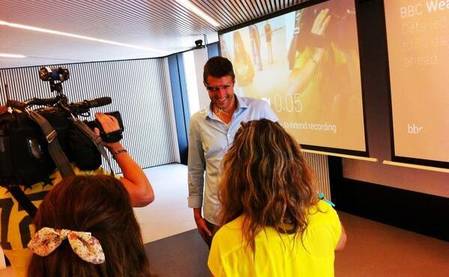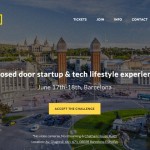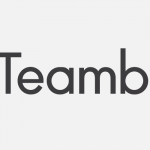This morning Barcinno had the opportunity to test drive the future as the new Google Glass Explorer made it’s Barcelona debut at the Mobile World Centre in Plaça Catalunya. The highly anticipated Google Glass Project is currently only available to software developers in the United States. While Google is aiming for a December 2013 public launch date, for proprietary reasons, they have yet to share the Glass experience with the rest of the world.
Despite the long wait, Project Glass has hardly been a secret. The first leaks appeared over 2 years ago and since February 2013, when US developers first got their hands on them, Google Glass videos have exploded across the web. It was even promoted through the viral Google contest #IfIHadGlass. But in the case that you have been lost at sea for the last 2 years and Barcinno is the first website you checked since being rescued, here’s how Glass works:
Just as it would be for any tech junkie, the experience of testing out Google Glass was a thrill. The Explorer is surprisingly lightweight and comfortable to wear. The main problem is starting a new action after completing a web search or video capture. You’re ready to move on, but Glass is still toggling through your previous command. However, the technology is undeniable. It will take some time for people to adapt (aka: avoid looking like a self-absorbed douche who can’t have a normal conversation), however, as the user experience improves, I believe Google Glass will become an ubiquitous, game-changing technology. 
The packaging is similar to what you bring home when you buy a new iPad. A clean, white box with only the word “glass” centered in the middle. For Google, not accustomed to launching B2C products, I suppose it’s best to emulate the best.
The press event was hosted by Mobile World Capital Barcelona at their flagship Mobile World Centre space in Plaça Catalunya. All the familiar faces like TV3 and La Vanguardia were present along with some local students and business people. Andreu Ibánez, from Ponent 2002, was on hand to lead the demonstration of Google Glass Explorer and explain the technologies inside. Ponent 2002 is Google’s Lleida-based tech partner for delivering high quality content to the Glass and Liquid Galaxy projects that rely on local teams to input geographic and technological data for the upcoming products to work effectively.
The experience was not without it’s hiccups, as Glass sometimes got stuck on a certain word or “misheard” the direction it was given. For example, when Andreu said, “Okay Glass, get directions to Sagrada Familia,” Glass produced a Google Search for Family Guy. I guess Peter Griffin and Gaudi are somehow related in the beta version.
Although the presentation was mostly in Catalan, this guiri had his chance to shine when they passed out the toys. Since Google Glass only takes commands in English, the only native speaker in the room was suddenly a hot commodity.
What are your thoughts on Google Glass? Is society ready for a wearable technology revolution or will smartphones prevail and keep Google Glass on the fringe for a few more years?








I think, as with other radically new technologies, some are ready for glass and they know it; some are ready, but they don’t know it; and the rest are somewhere on the spectrum between, “what’s a Google glass?” and “what a waste of good glass.” As with smartphones and tablets, I think it’s all about the practical applications of the technology. Of course, there will be the early adopters that will tailor their routines to accommodate the technology, but for broad scope success, there needs to be real purpose for investing the time and $$’s in Glass.
My guess is adoption will begin in very specific vertical markets. For example, use the medical field. I envision a nursing staff that can continue to monitor patients while attending to other tasks. “Okay, Glass, stats on patient Jack Smith.” Yes, this info could be accessed via smartphone or tablet, but the ease of just asking and viewing without leaving the task at (in) hand?
I also recently saw Glass integration with motorcycle helmets for navigation, traffic notifications, etc. The technology even based the size and view location of the information on the cycle speed and traffic conditions—moving it further out of line-of-sight to peripheral vision, in theory enhancing the safety of this technology.
And as other complimentary technologies like M2M, IoT, and AR continue to mature, Glass will likely become just another way to enhance/augment our daily lives. And as with earbuds and sidewalk phone conversations via hands-free headsets, people will stop noticing Glass and just accept that they either ‘get it’ (and want it) or they don’t.
Oh, but then there’s that whole privacy thing . . .
Thanks Steven! I agree, there will likely be vertical specific adoption curves that vary widely based on industry and geography. In Madrid last month, a surgeon performed a transplant operation while wearing Glass so experts in the US could follow along and offer live feedback. I hadn’t heard about the motorcycle helmet integration.
Privacy is a major concern, but if you look at the generations coming up after us, they are less and less concerned about their online privacy. Sharing is an inherent part of their world. Perhaps these always on, ubiquitous technologies will usher in a brave new transparent world. Gov’t monitoring won’t be necessary because your personal reputation is inescapable and instantly available to everyone you encounter.
Okay, I’m getting a little carried away. Perhaps the biggest barrier to widespread adoption is the inability to use Glass and have a normal conversation at the same time…
Thanks for the great comment! Cheers!
I had not heard about the assisted surgery; that is very cool. Yes, that’s exactly the type of vertical and situation I was thinking of. I’d be curious as to how this alchemy of tech and medical practice came about. Was the surgeon himself the conduit for this tech integration? Or, is he one of the I’m sure many examples of people who are ‘ready’ for Glass but don’t necessarily know it (until some techie says, “hey, what if . . . “).
And not to turn this into a discussion on privacy, but I’ve heard a few people mention upcoming generations and the seeming lack of concern about online privacy. While I certainly think it’s true (and I’m ‘guilty’ of sharing all sorts of personal details on FB, LI, blogs, etc.), I can’t help but wonder if we “sharers” are just blissfully unaware (or unconcerned) about the collection of this data and how it can and will be used. History shows there are always those who can and will take a perfectly “for good” concept and find a way to go all ‘nefarious’ on mankind.
Will it happen with privacy and our ever-growing mass of BIG data? Who knows . . . but I recently came across an excellent article in The New Yorker entitled, “The Prism: Privacy in an age of publicity.” And to quote the author, “ . . . the case for privacy always comes too late. The horse is out of the barn. The post office has opened your mail. Your photograph is on Facebook. Google already knows that, notwithstanding your demographic, you hate kale.” It’s a great read if you have a chance.
But, then again, maybe I’m just being a little paranoid and ‘old school’ . . . maybe it will be just fine when everyone knows everything about everyone else. Hey, I recall my mom refusing, from day-one, to have Caller ID on her phone since companies she’d call could take that information and use it for, ahem, nefarious purposes. Funny, she still doesn’t have it (and that’s exactly how I always know it’s her calling!).